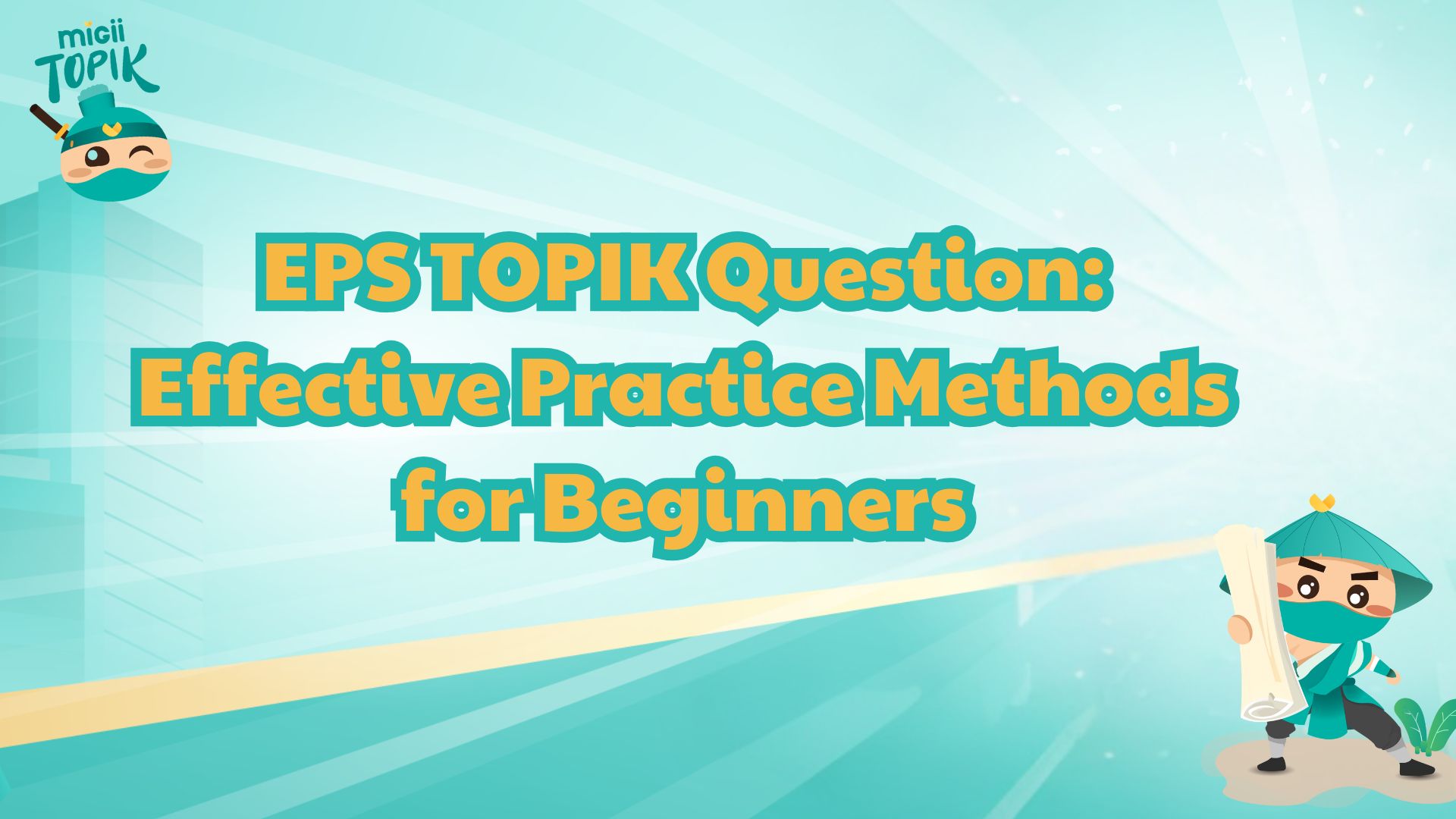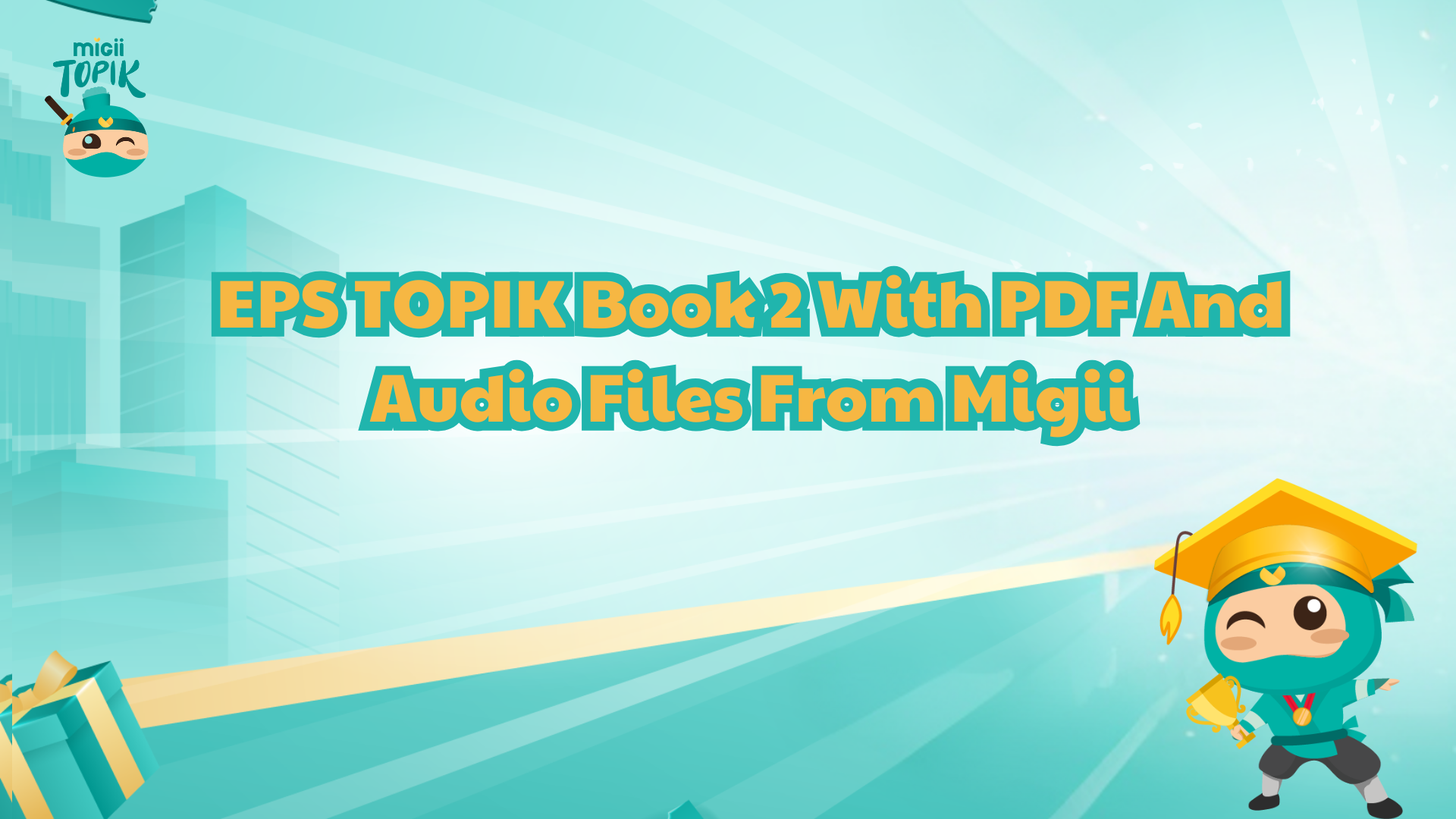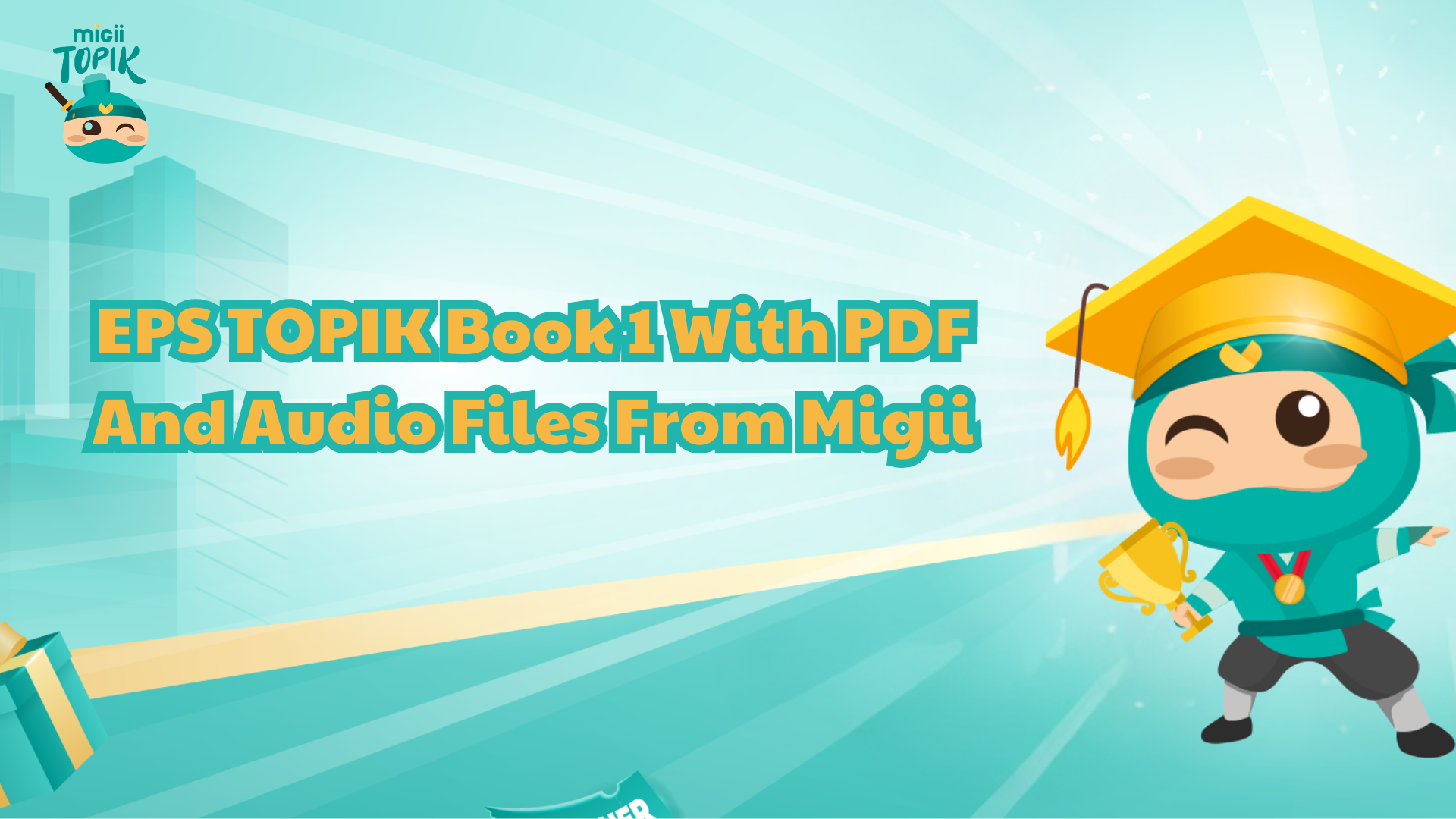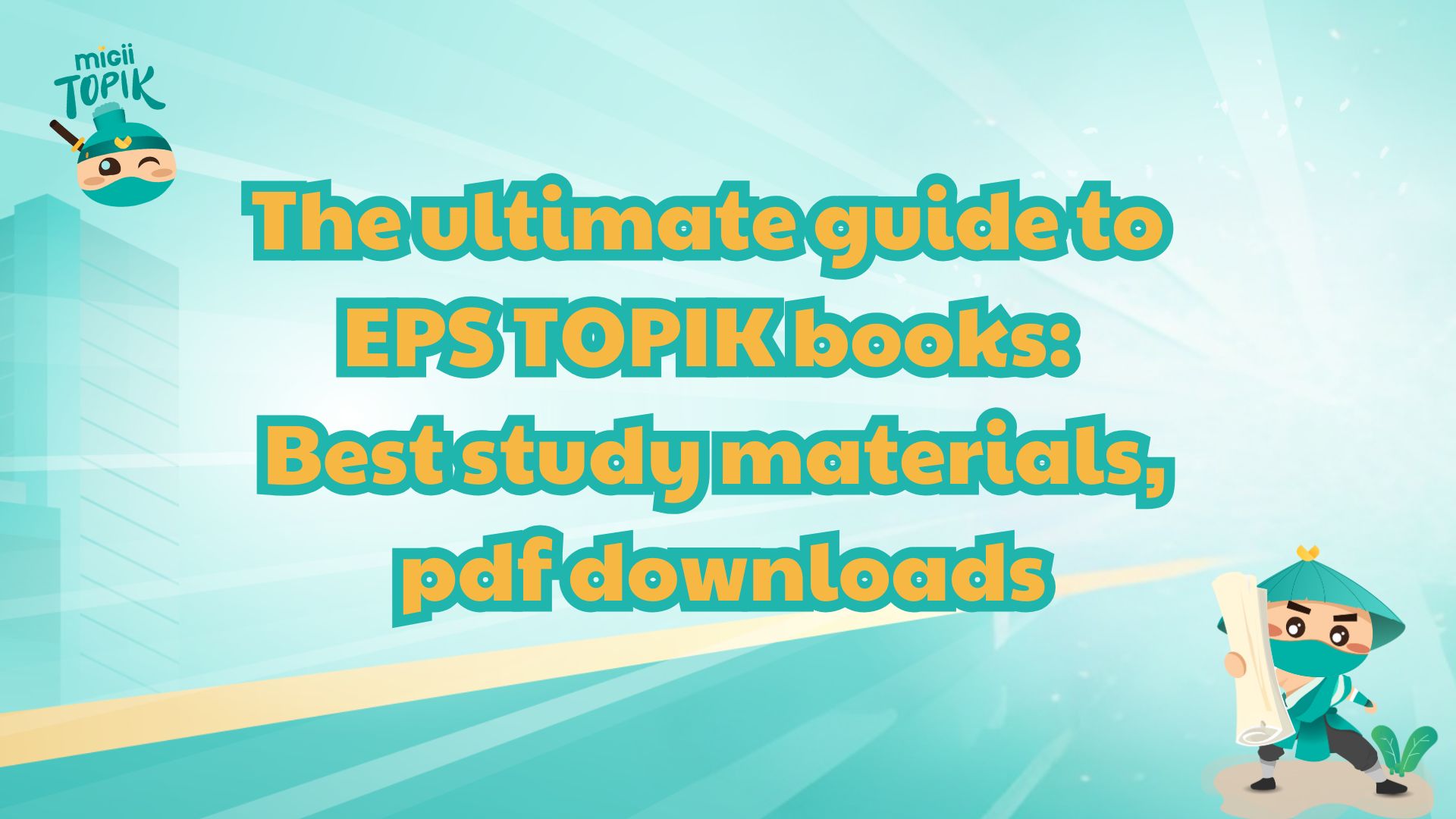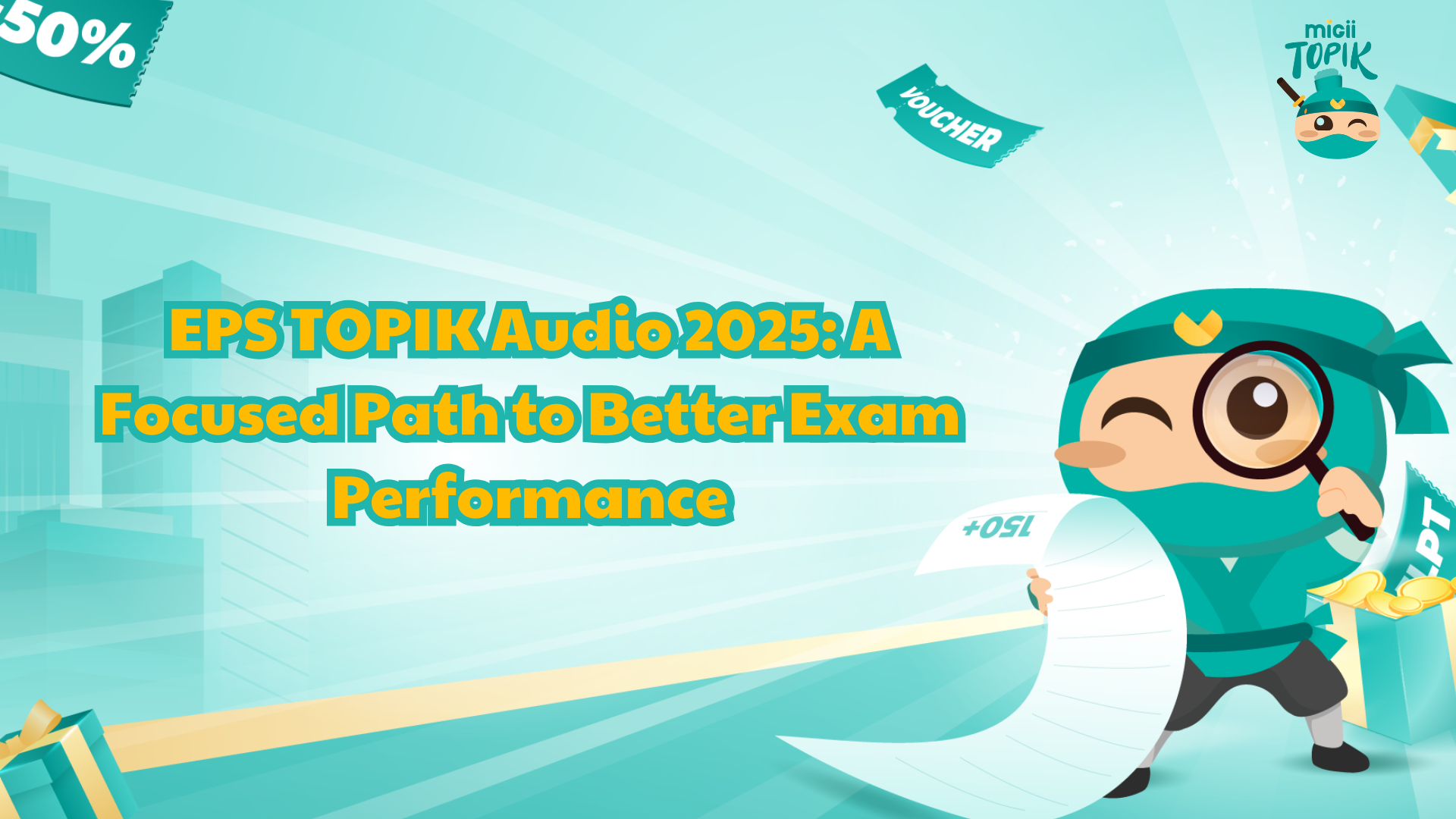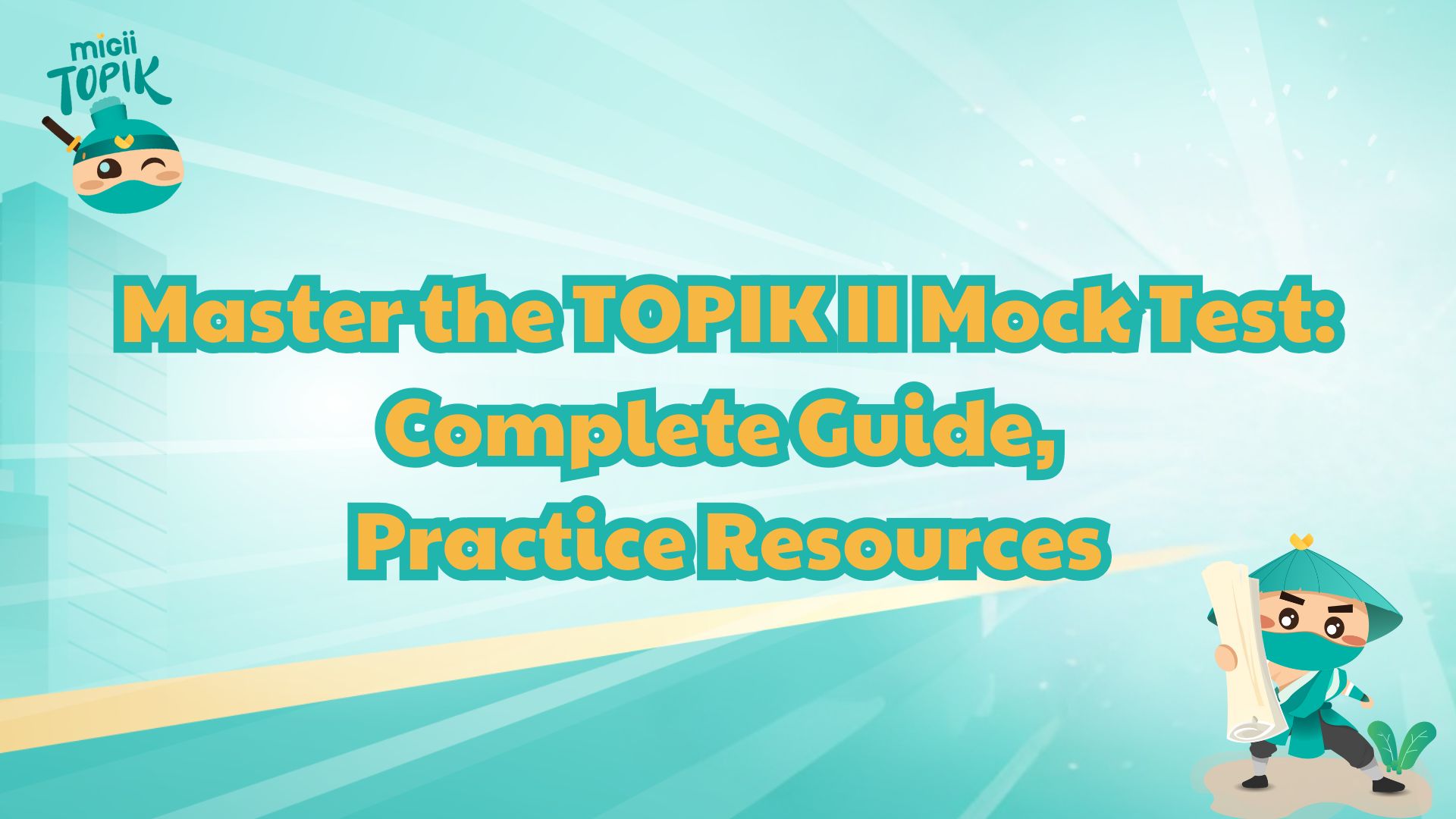TOPIK 2 books are essential resources for learners aiming to achieve intermediate to advanced levels in Korean. These books are specifically designed to help students prepare for the TOPIK II exam, which tests reading, listening, and writing skills. With structured lessons, practice questions, and detailed explanations, TOPIK 2 books provide a clear study path, making them ideal for self-learners or anyone planning to study or work in Korea.
General introduction about the TOPIK exam and the TOPIK 2 Book
The TOPIK (Test of Proficiency in Korean) is an official Korean language proficiency exam designed for non-native speakers. It plays a crucial role for those who wish to study, work, or apply for scholarships in Korea. Recognized by universities, companies, and government organizations, TOPIK evaluates learners’ reading, writing, and listening skills. Achieving a good TOPIK score not only strengthens your academic and career opportunities but also demonstrates your commitment to understanding Korean language and culture.
TOPIK II (levels 3–6) is the intermediate to advanced level of the exam, assessing three key skills: listening, reading, and writing, with more complex vocabulary and grammar requirements. Choosing the right preparation book is a crucial factor that helps learners save time and study more effectively.
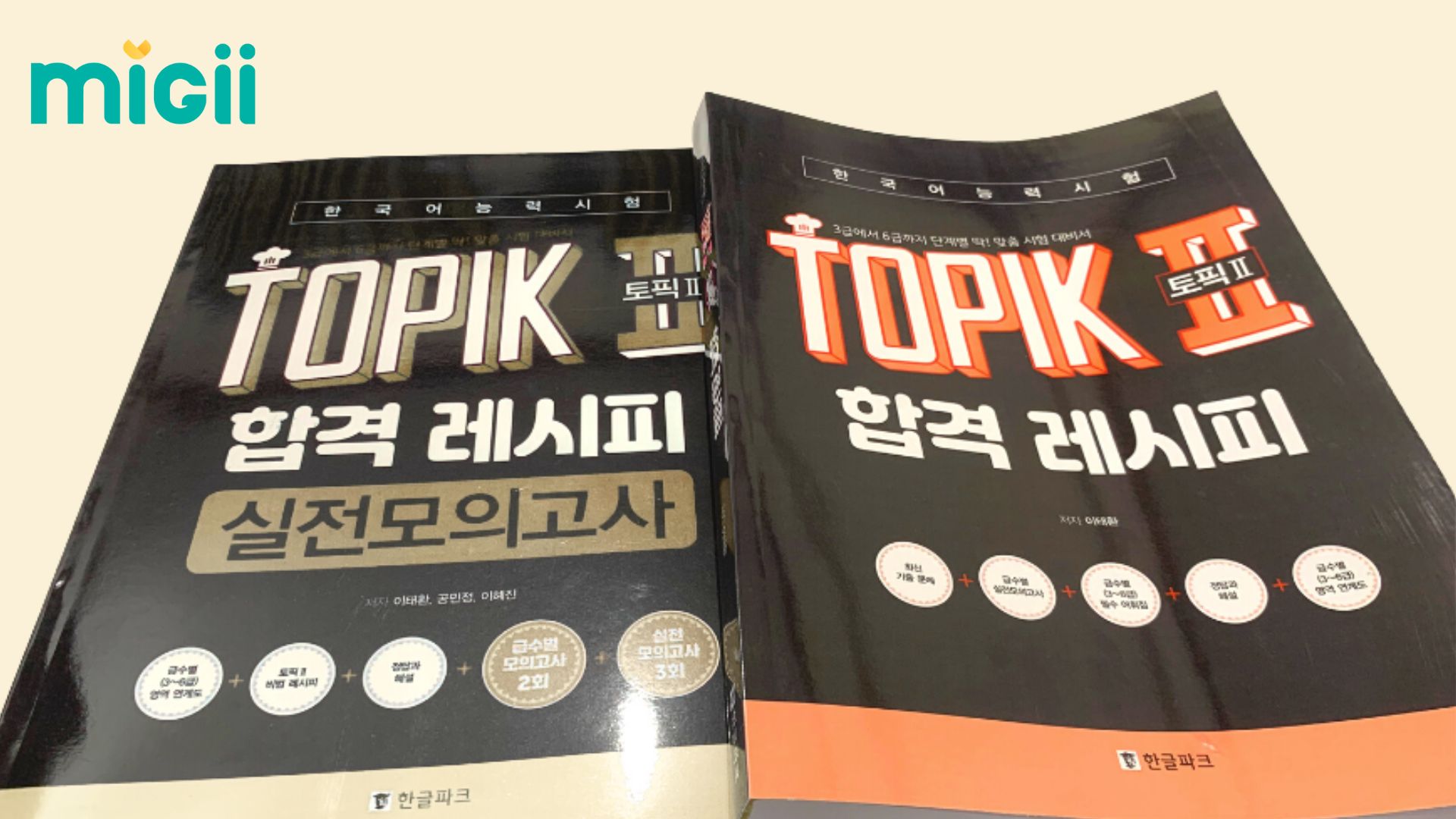
Introduction about the TOPIK exam
This article provides a comprehensive list of more than 10 highly recommended books for TOPIK 2 preparation. To make it easier for learners to choose, the books are categorized according to the three main skill areas tested in the exam: listening, reading, and writing.
For each book, you’ll find a clear and detailed review, including:
- Content overview – what the book covers and how the lessons are structured.
- Target learners – the level and type of students who will benefit the most.
- Key highlights – the standout features that make each book worth using.
Whether you are aiming for TOPIK level 3 or level 6, this curated selection will help you find the most suitable materials to improve your skills and prepare more efficiently for the exam.
Distinguishing TOPIK I and TOPIK II to choose the right book
Here’s a more detailed comparison table between TOPIK I and TOPIK II, including additional aspects like vocabulary/grammar level, test duration, scoring, and typical learners. This level of detail will help readers clearly understand the distinctions and pick the right preparation books accordingly:
|
Criteria |
TOPIK I (Level 1–2) |
TOPIK II (Level 3–6) |
|
Objective |
Assess basic Korean communication ability in daily life |
Assess intermediate to advanced language proficiency for academic, work, or immigration purposes |
|
Tested Skills |
Listening, Reading |
Listening, Reading, Writing |
|
Vocabulary & Grammar |
Basic sentence structures, common vocabulary (~800–1,500 words) |
Complex grammar, formal and academic expressions, advanced vocabulary (~2,000+ words) |
|
Test Structure |
2 sections: Listening (30 questions), Reading (40 questions) |
3 sections: Listening (50 questions), Writing (4 questions including essay), Reading (50 questions) |
|
Test Duration |
100 minutes total (Listening: 40 min, Reading: 60 min) |
180 minutes total (Listening: 60 min, Writing: 50 min, Reading: 70 min) |
|
Scoring |
Maximum 200 points (Listening 100 + Reading 100) |
Maximum 300 points (Listening 100 + Writing 100 + Reading 100) |
|
Passing Levels |
Level 1: 80–139 points Level 2: 140–200 points |
Level 3: 120–149 points Level 4: 150–189 points Level 5: 190–229 points Level 6: 230–300 points |
|
Entry Level |
Beginners with around 200 study hours or basic Korean knowledge |
Intermediate to advanced learners who have completed TOPIK I or equivalent study |
|
Content Focus |
Everyday conversations, simple grammar, short texts |
Academic and formal writing, longer texts, logical structuring of essays |
|
Typical Learners |
New learners, casual learners, tourists, or those starting their Korean language journey |
University applicants, scholarship candidates, job seekers, or professionals using Korean in daily work |
Top 10+ TOPIK 2 test preparation books with the highest ratings
1, TOPIK Master Final – All-in-One Preparation
When searching for the best TOPIK 2 books, many learners look for resources that cover all three essential skills — Listening, Reading, and Writing — in a single, structured volume. These all-in-one books are ideal for those who want a clear study plan and prefer to follow a comprehensive pathway from start to finish.
- Overview: A well-structured book designed for learners targeting levels 3–6. It includes grammar explanations, vocabulary lists, listening scripts, and writing tips.
- Best For: Learners who want a single resource covering all skills with step-by-step guidance.
- Key Highlights:
- 6 full mock tests with answer keys and explanations
- Detailed writing section with model essays
- Integrated skill-building approach
2, Complete Guide to the TOPIK Speaking
- Overview: A focused reading practice book that breaks down different question types, such as vocabulary, sentence structure, main ideas, and inference questions.
- Best For: Learners who want to understand the logic behind each reading question type.
- Key Highlights:
- Step-by-step explanation of reading strategies
- Practice sets organized by difficulty level
- Useful tips on time management and identifying keywords
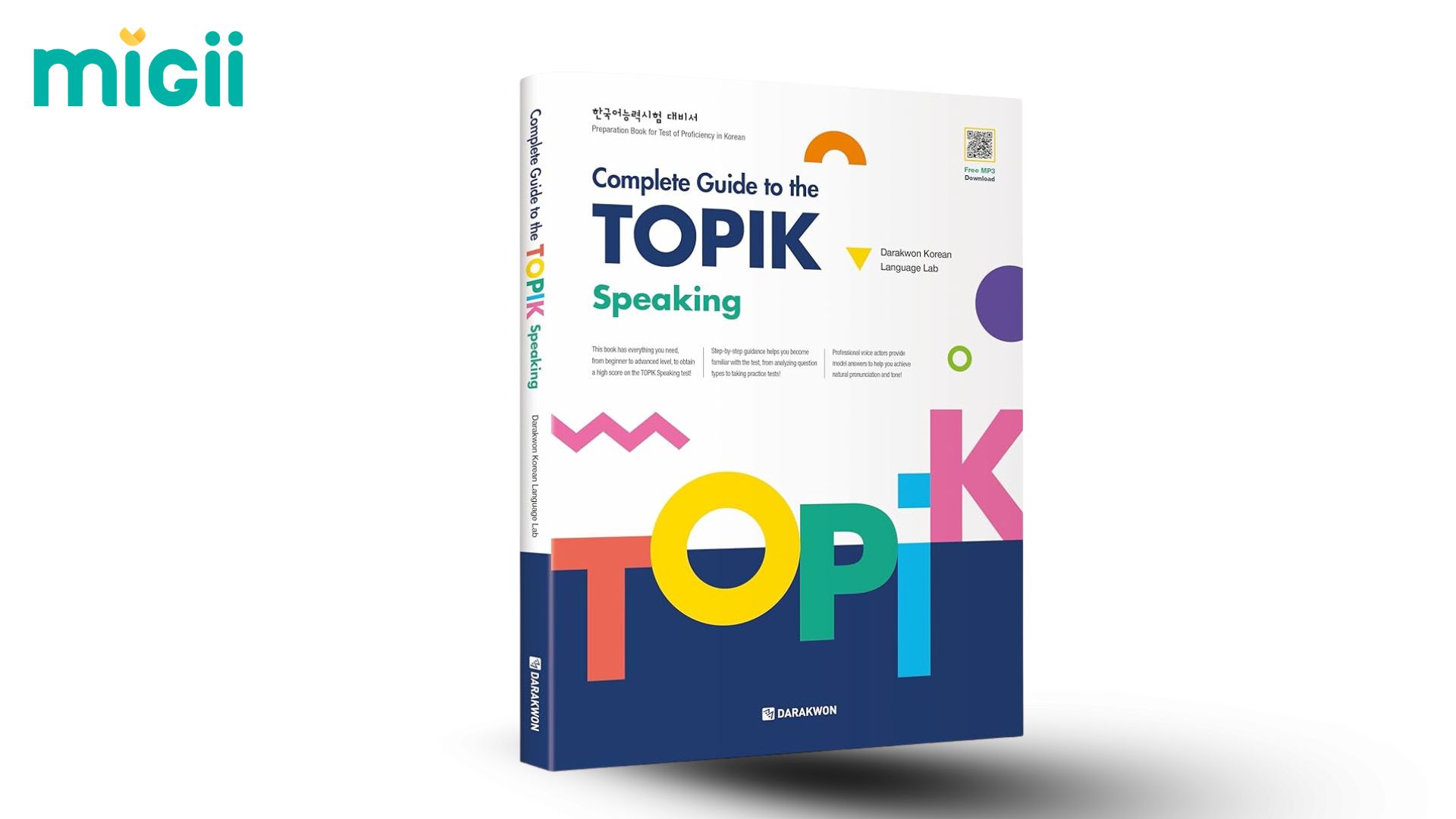
TOPIK II Reading Guide
3, Intensive TOPIK II Reading
- Overview: This book is designed for intensive reading practice with a strong emphasis on speed and accuracy. It contains dozens of practice passages similar in length and difficulty to real TOPIK II exams.
- Best For: Intermediate to advanced learners who want to improve their reading speed under timed conditions.
- Key Highlights:
- Large number of passages with detailed answer explanations
- Timed practice exercises to simulate exam conditions
- Focus on common traps and distractors in the reading section
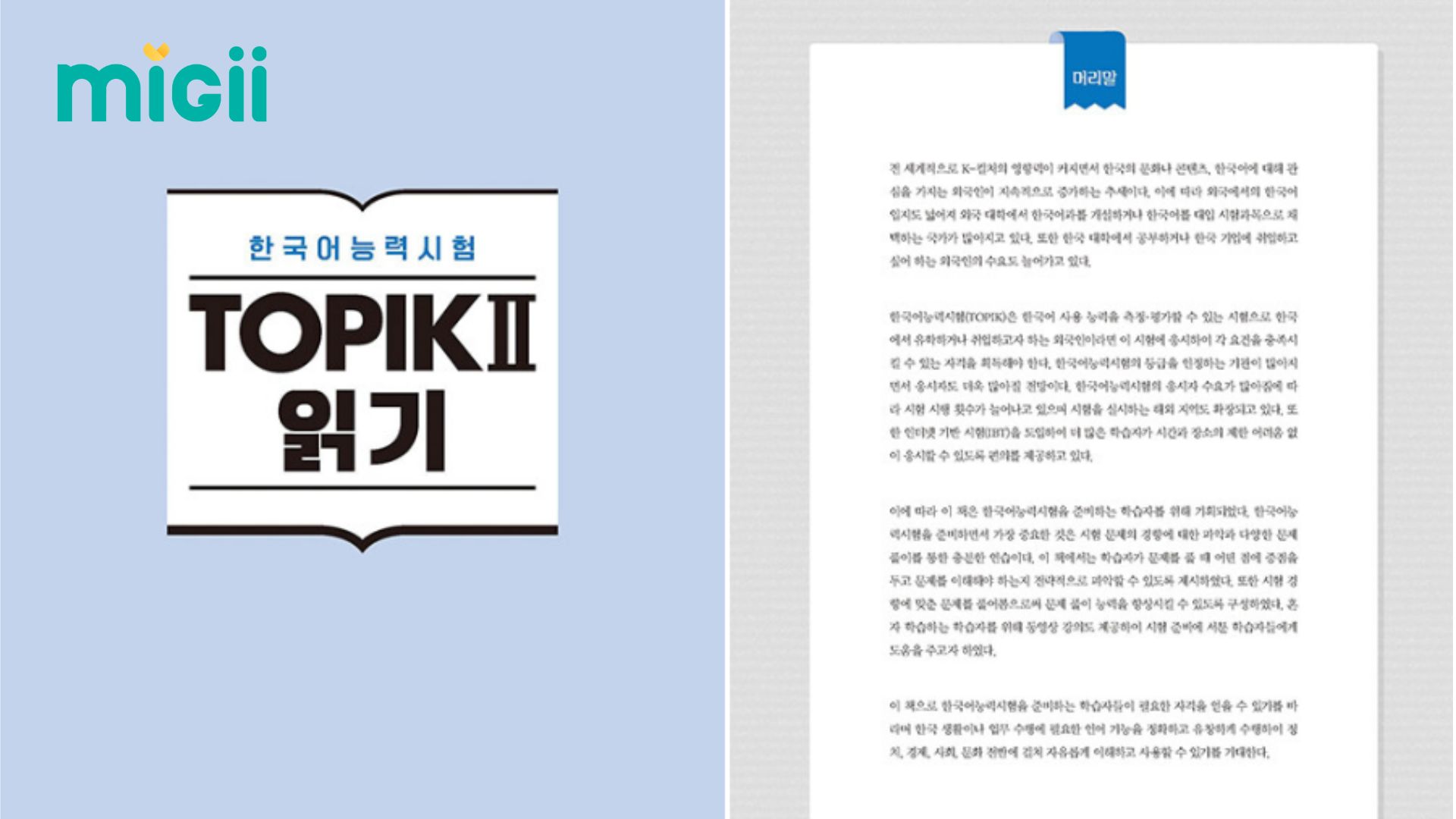
Intensive TOPIK II Reading
4, TOPIK II Real Test Reading Collection
- Overview: A compilation of reading passages from previous TOPIK II exams. The book focuses on familiarizing learners with real test formats and question patterns.
- Best For: Learners who want to get used to actual test passages and improve their score through exposure to authentic materials.
- Key Highlights:
- Past exam questions with full answer keys
- Explanations for vocabulary and grammar in context
- Great for last-stage exam preparation
5, TOPIK II Listening Intensive Practice
- Overview: A specialized listening practice book that focuses on building comprehension and reaction speed through exercises modeled after real TOPIK II questions.
- Best For: Learners who want to strengthen their listening foundation and get accustomed to the test format.
- Key Highlights:
- Audio tracks recorded at real test speed
- Full transcripts for every exercise
- Practice questions following official TOPIK structure
- Step-by-step explanation of common listening traps
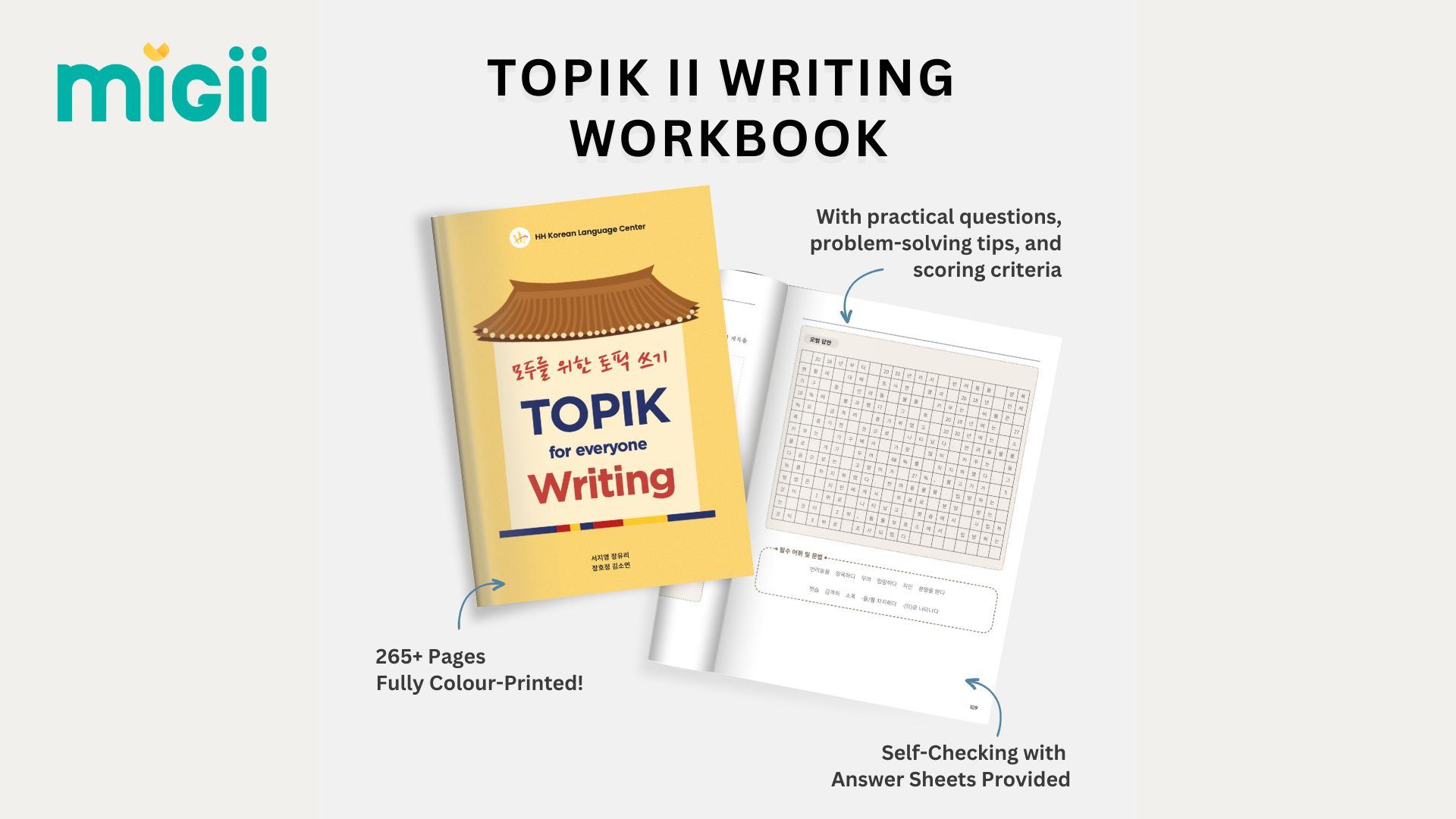
TOPIK II Listening Intensive Practice
6, TOPIK II Listening test proficiency in Korea
- Overview: This book uses real past TOPIK II listening questions, making it one of the most effective resources for understanding the actual question format, speaker style, and audio patterns.
- Best For: Intermediate to advanced learners preparing for the actual exam.
- Key Highlights:
- Real exam audio at authentic speed
- Official transcripts included
- Exercises organized by test year and difficulty
- Excellent for timed practice and score tracking
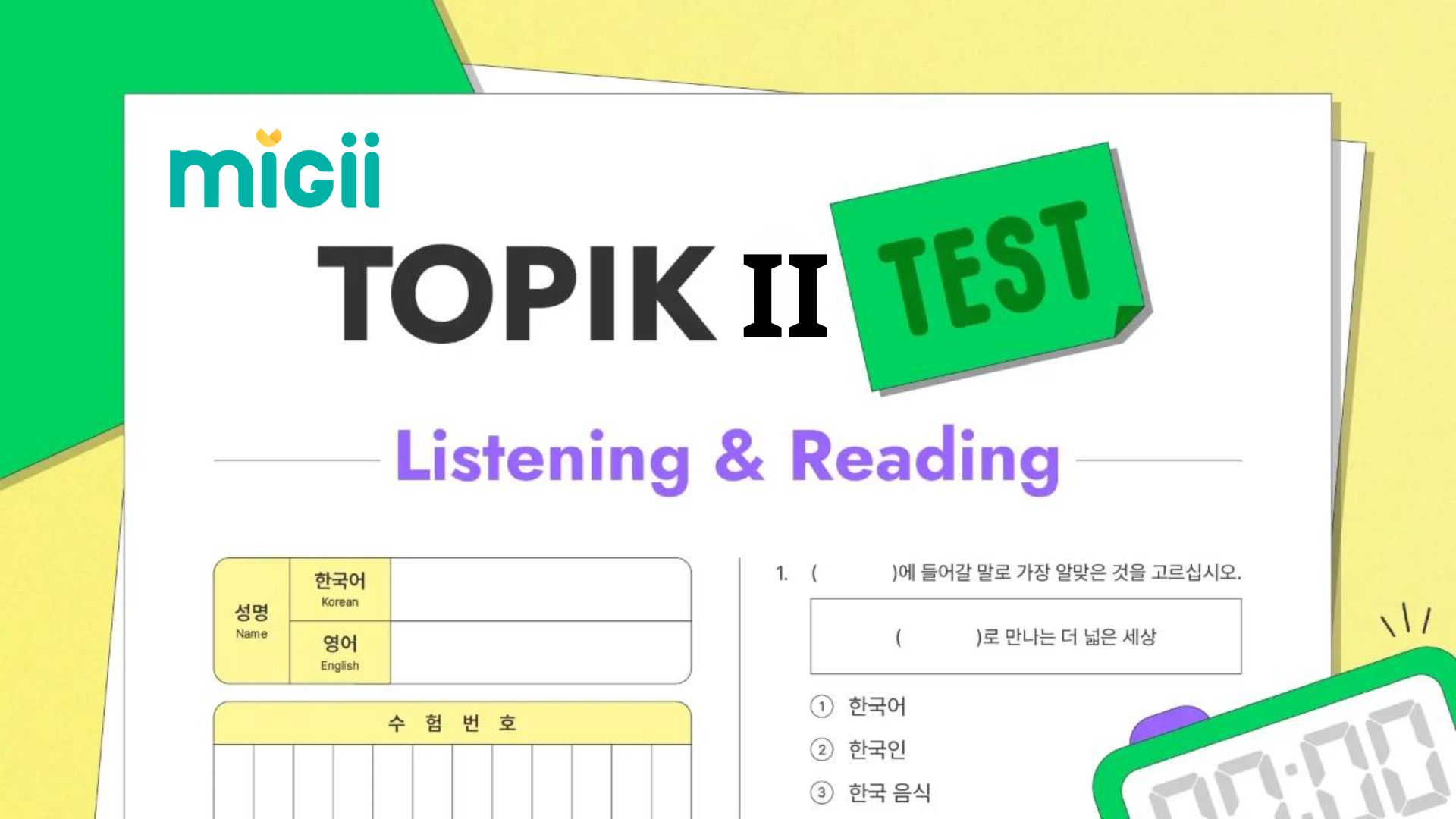
Real Test Listening Collection for TOPIK II
7, Topik for everyone wrting
Among the three skills in TOPIK II, writing is often considered the most challenging, even for learners with solid reading and listening skills. This section of the test requires not only a good command of vocabulary and grammar but also the ability to structure ideas logically and express them clearly in Korean. Therefore, choosing the right writing practice book can significantly improve your score, especially in Questions 51–54 of the exam.
This book focuses intensively on question types and model answers, helping learners understand exactly what examiners expect. It provides detailed guidance on how to approach each writing task, from short-answer questions to full essay compositions. The book includes high-scoring sample essays with explanations of why they achieved such results, making it easier for learners to replicate effective strategies in their own writing.
While Book 8 emphasizes structure and examples, Book 9 is designed to help students practice systematically through step-by-step writing exercises. It breaks down complex tasks into manageable stages, allowing learners to gradually build confidence. The book features thematic writing drills, grammar review sections tailored to written language, and practice questions modeled closely after the official TOPIK II exam.
Together, these writing practice books provide a comprehensive pathway: Book 8 helps learners understand and internalize model structures, while Book 9 focuses on practical application and progressive improvement. For anyone aiming to raise their writing score, using both resources strategically can make a noticeable difference.
Criteria for Choosing Effective TOPIK 2 Preparation Books
When looking for the best TOPIK 2 books, it’s important to focus on quality and suitability rather than just popularity. A good preparation book should match your current level, cover all three skills comprehensively, and provide clear guidance for self-study. Paying attention to key features such as writing practice, audio quality, and answer explanations will help you study more efficiently and achieve higher scores. Below are the main criteria you should consider before making a choice:
- Appropriate for intermediate to advanced learners, as TOPIK II requires strong grammar, vocabulary, and reading comprehension.
- Detailed writing section, including high-scoring sample essays, model answers, and useful sentence patterns.
- Authentic Korean audio at real exam speed, with full transcripts for effective listening practice.
- Answer keys and thorough explanations to support independent study and help learners understand their mistakes.
- Clear and logical structure, making it easy to follow a study plan and track progress.
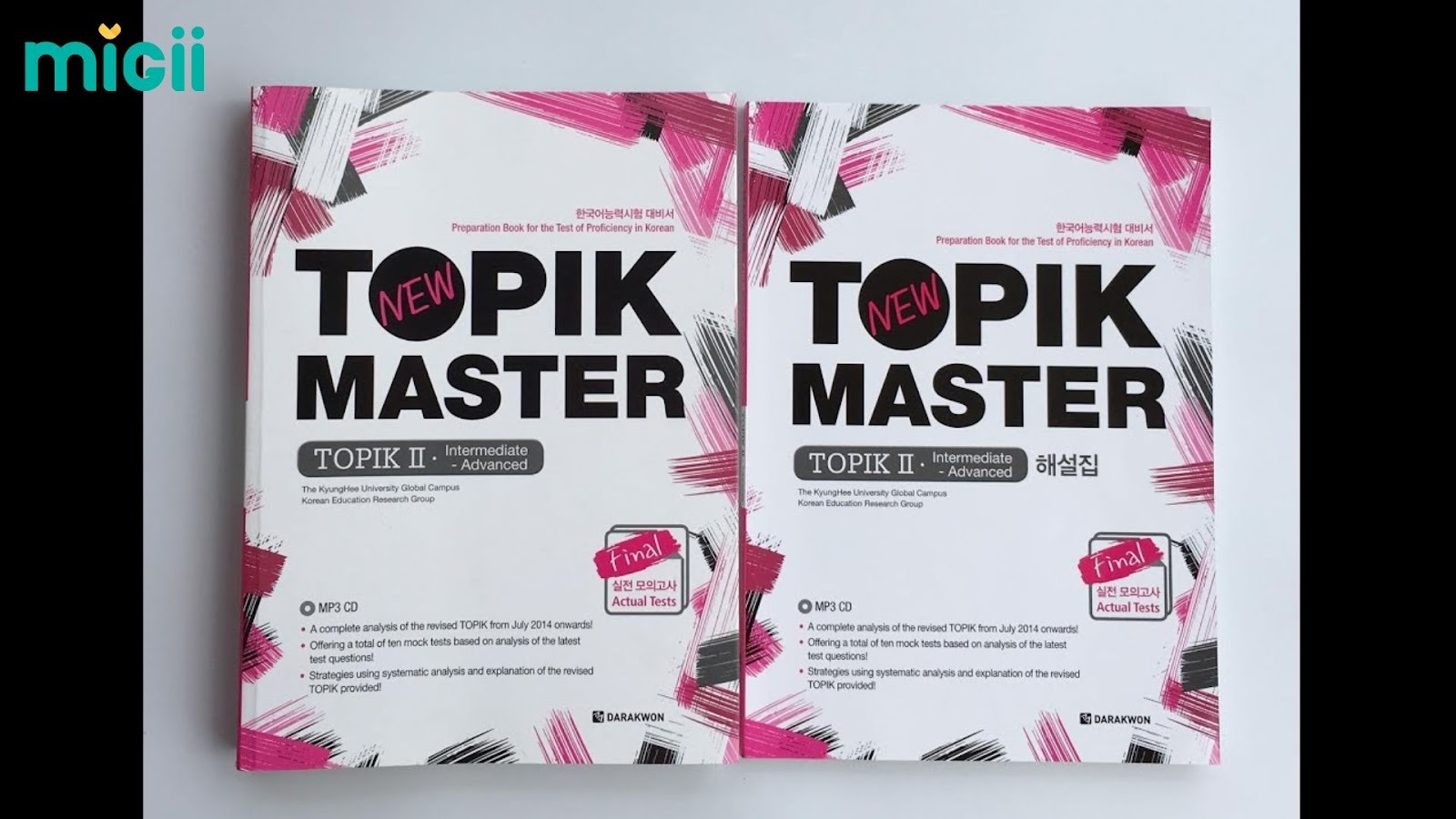
TOPIK 2 selection criteria
Conclusion
In conclusion, effective TOPIK II preparation depends greatly on choosing the right books and following a clear, structured study plan. Since each learner has different levels and goals, it’s important to select materials that best fit your needs. With the high-quality books compiled above, you can build an efficient self-study strategy and aim for your desired level. Migii will continue to accompany learners on their TOPIK journey by sharing valuable book recommendations, study tips, and resources. With the right support and consistent effort, achieving a high TOPIK II score is absolutely within reach.
